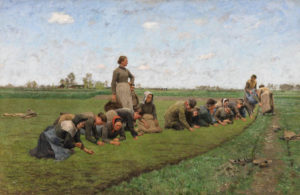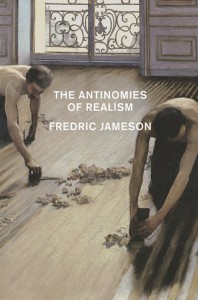
Social Theory and the Realist Impulse in Nineteenth-Century Art
Apprehension of the social can be effected conceptually through theoretical reflection on social formations and the structures underlying them—as in the body of thinking variously described as social theory, political economy or sociology. The picturing of the social, though, generally operates in a different mode. In the Realist or Naturalist forms of picturing dominant in later nineteenth-century depictions of modern life, the scene or situation was designed to be apprehended by the viewer as a directly experienced physical reality. An existential awareness of the social, experienced at a level that was not fully conceptually articulated, was where visual art’s picturing came into its own.




